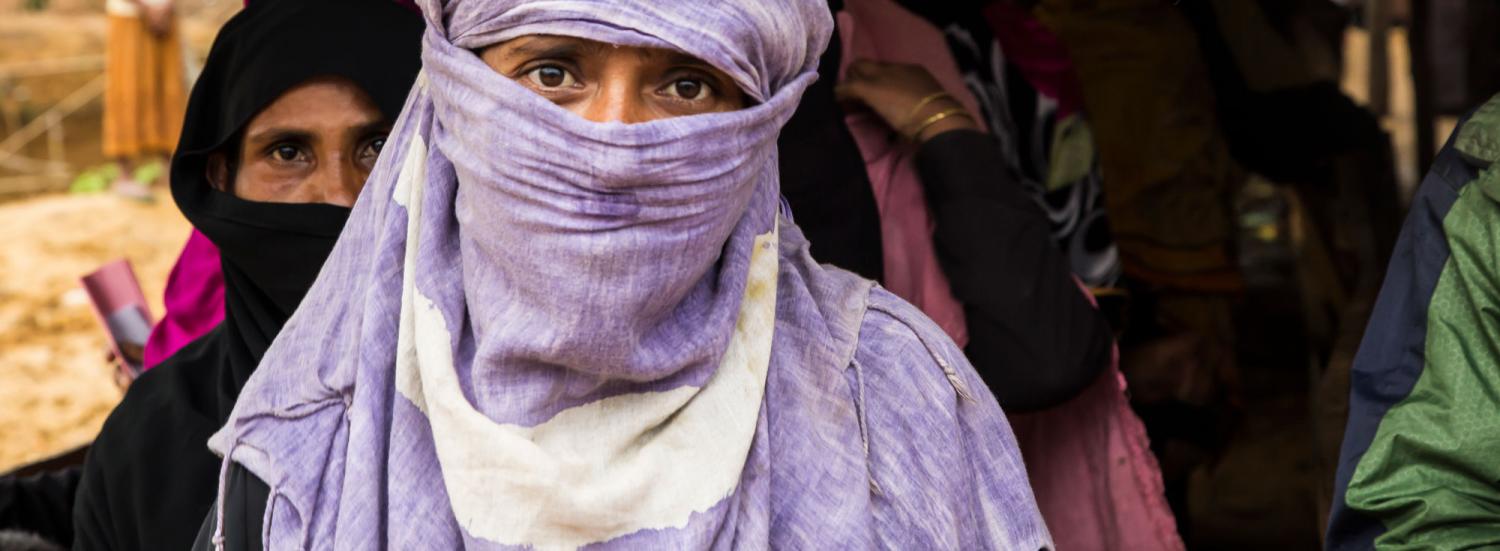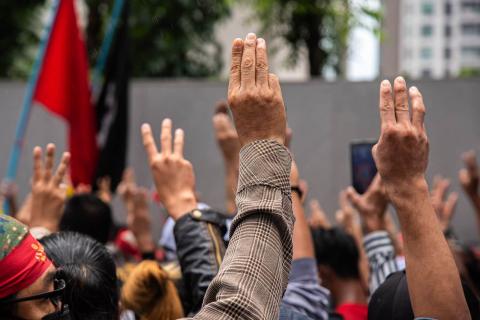In July, shortly before an escalation of clashes in Rakhine state intensified the exodus of Rohingya people from Myanmar, Elliot Brennan wrote of Myanmar:
Naypyidaw has failed to enable moderates in Rakhine state and an emergent yet hitherto weak Muslim insurgency has emerged. The situation must urgently be addressed.
Then, in early September, Sebastian Strangio savaged Aung San Suu Kyi’s silence on the issue:
…it is remarkable to note just how far Suu Kyi’s global standing has fallen since she took office as Myanmar’s de facto leader in April 2016. The catalyst has been her unconscionable silence about the terrifying ethnic cleansing now unfolding against the Muslim Rohingya minority in Rakhine State, in western Myanmar.
Melissa Crouch questioned the politics of ascribing 'terrorism' as the cause of the crisis:
In Myanmar, where the military has perfected the art of terrorising people over decades, the threats come from many sides.
And Andrew Selth reminded us there is no straighforward solution to the crisis:
Given current attitudes in Myanmar, the Rohingya tragedy could drag on for years.
The crisis is placing unprecedented pressure on parts of Bangladesh closest to the Rakhine border, particularly in and around Cox’s Bazar. Khalid Khoser and Lilia Schumicky-Logan:
Faced with a real crisis – imagine one million refugees arriving in the space of a few weeks say, in Canberra, which has roughly the same population as Cox's Bazar – extreme responses should not be surprising.
In late October, Andray Abrahamian warned of limits to any US plans to impose sanctions against Myanmar:
It would be ironic indeed if a new round of sanctions gave the military the domestic legitimacy of which previous sanctions once starved it. What sanctions won’t do is alter the brutal facts on the ground in Rakhine State.
Erin Cook criticised ASEAN for ignoring the deepening crisis during its November summit:
That one member state can repeatedly spike any clear reference to one of the world’s worst humanitarian crises on the basis of sovereignty and ‘non-interference’ undermines a point made by Myanmar’s de facto leader Aung San Suu Kyi herself back in 1999. 'The policy of non-interference is just an excuse for not helping,' she pleaded then during a brief respite from house arrest under the military junta. 'In this day and age, you cannot avoid interference in the matters of other countries.'
And in November, Andrew Selth highlighted the challenges of negotiating with Myanmar’s security forces:
Myanmar’s security forces are determined to pursue their own agenda. Aung San Suu Kyi may be responsive to foreign demands for more humane policies, but the generals are unlikely to be persuaded to change their long term goals by anything the international community might say or do.

